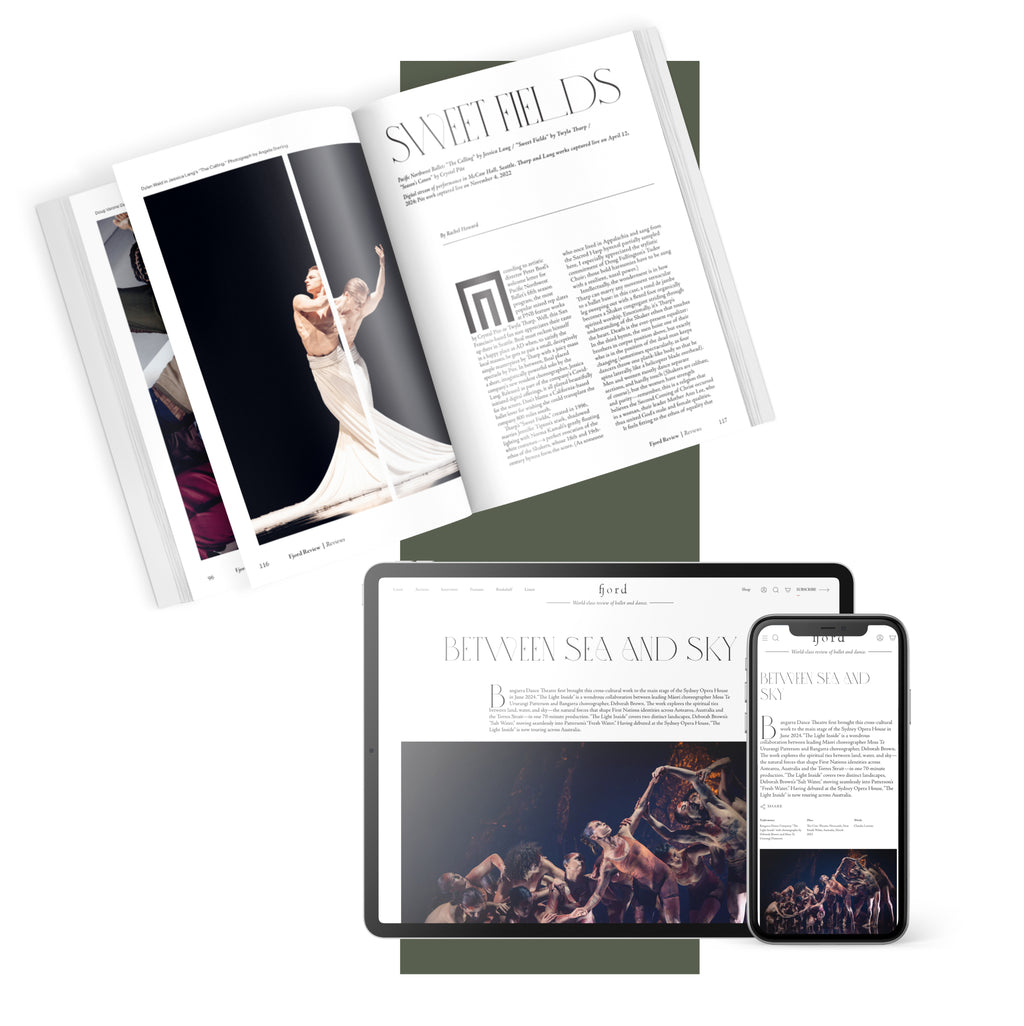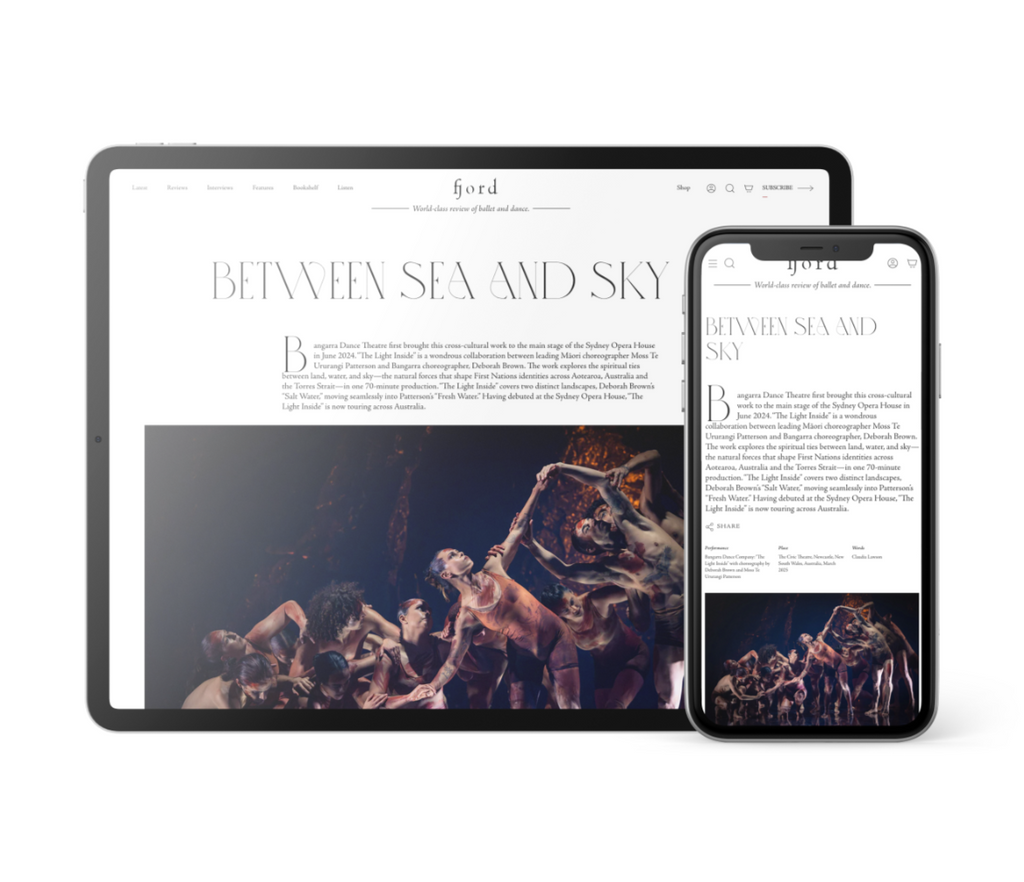When Jenny Levy enters for her solo, “Jenny’s Elegant Dream,” we hear the first of the Joyce text excerpts in Patrick Fitzgerald's Irish brogue. Levy’s pace is meditative, allowing us to see the precise bloom of a lunge, her arms reaching out like flower stamens. This blends easily into a duet (“Jack and Jenny in Nature”) when Murphy enters the space to echo her final phrases. Once Robertson’s film “Dark Behind the Glass” begins, I realize this generous introduction to each of the dancers serves a structural purpose. After these five opening sections, I’m familiar with the way the dancers move, so that when the camera pans out and they become part of a larger landscape, I recognize the patterns and phrasing. Movement that struck me as a little old-fashioned on an unadorned stage, now looks completely natural. Perched on sunken pillars of old waterside piers, the dancers could be cormorants drying their wings. In the city, they join a flock of pigeons. We see them moving inside a subway elevator through the transparent doors, while a woman’s voice announces Brooklyn bound A-train stops.
The film features images of the Queensborough Bridge that spans the East River. At one point, the shadow of the Roosevelt Island aerial tram travels across the face of red brick apartment buildings. For an instant the shadow is superimposed with an image of Levy, back arched, blue silk scarf billowing. She becomes the figurehead of a surreal ship sailing across the sky. The image dissolves as quickly as it appeared, leaving me with the feeling I dreamt it.
The camera zooms in for a striking solo by dancer Daniel Morimoto (who is not part of the stage ensemble) on the breakwaters of Rockaway Beach. He crouches and reaches, curves into an arch, confidently navigating the slippery boulders as surely as if they were a stable Marley dance floor. For a moment, the filmmaker doubles Morimoto’s image so that it appears he’s emerging, amphibious, from the water. Later, the dancers, seen through the windows of an elevated subway train car, echo his arching. Fitzgerald recites a line about a lover’s kiss.











comments